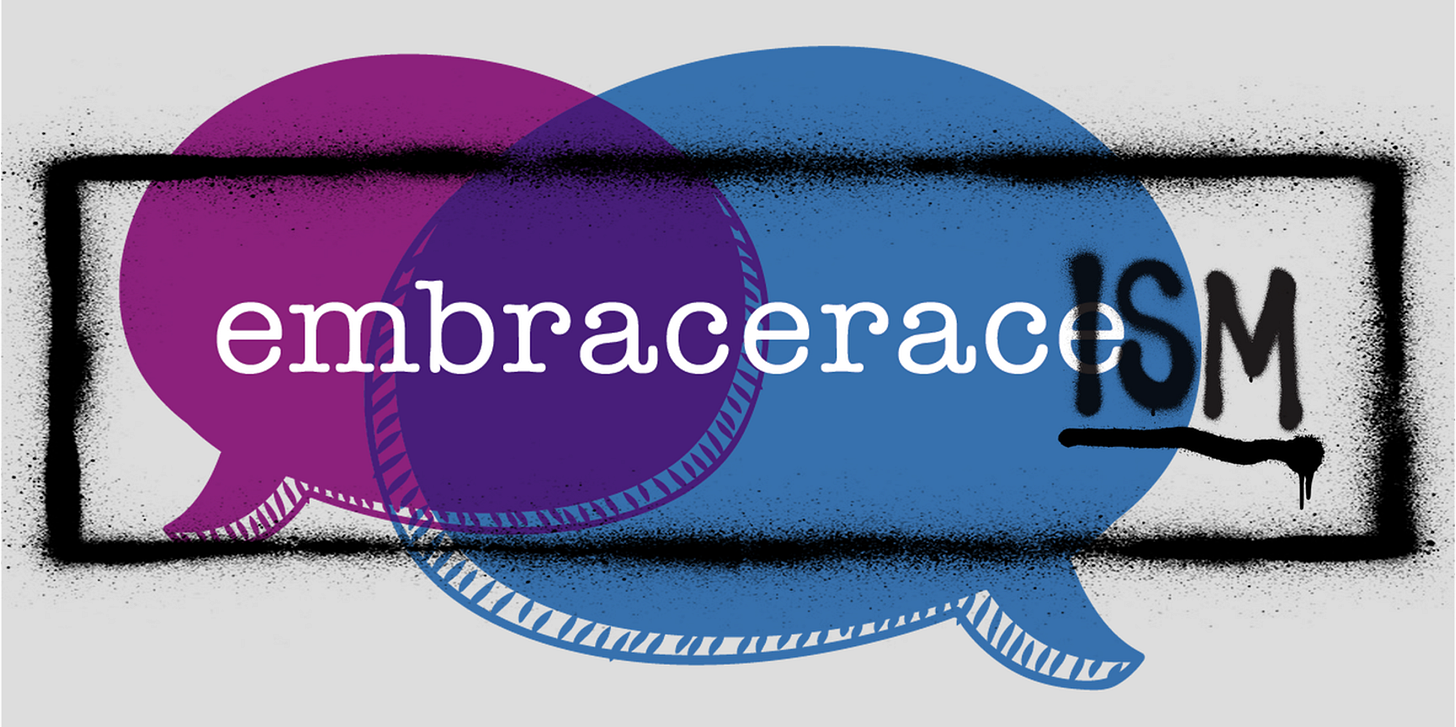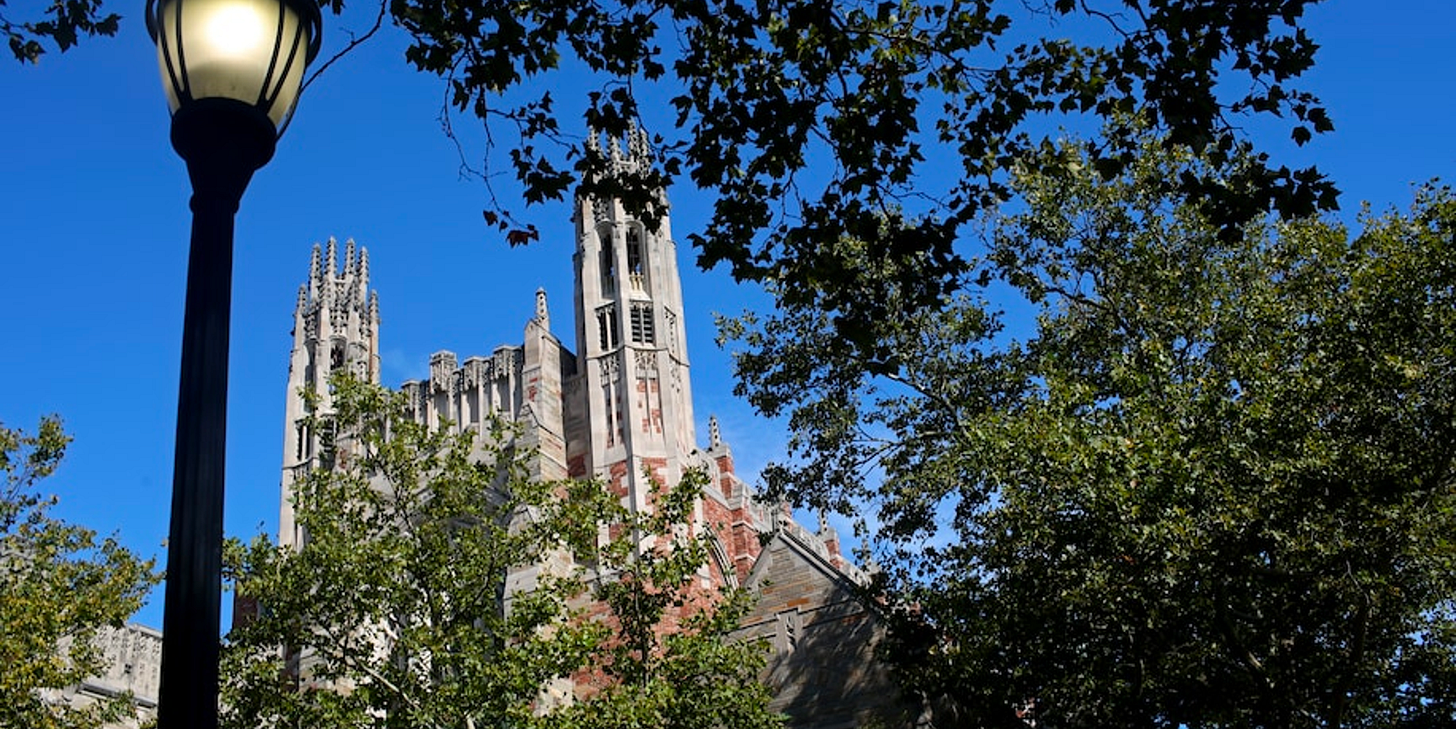For audio versions of our FAIR News and FAIR Weekly Roundup newsletters, subscribe and listen to our FAIR News Weekly podcast here.
This week, FAIR investigative journalist Grayson Slover reported on a March 23rd, 2022, webinar by the nonprofit group Embrace Race titled “Building meaningful, healthy relationships among kids of color.” The organization was founded by Melissa Giraud and Andrew Grant-Thomas, a couple who created the organization to “meet the challenges faced by those raising children in a world where race matters.”
Giraud and Grant-Thomas interviewed three members of “Families of Color-Seattle (FOCS),” a nonprofit based in Seattle, Washington that focuses mainly on “increas[ing] parenting skills and provid[ing] a space to discuss identity and race” for “families of color.” During the webinar, parents were told the “importance of parents connecting with other parents of the same skin color or ethnicity,” and that they should encourage their children to think the same way.
For our Substack, FAIR Advisor Zander Keig wrote a piece about the diversity of opinion within the so-called “trans community,” and the harm done by activists with large platforms who try to silence those with differing views.
Keig, who is a transexual man, is “working with FAIR to advance a pro-human response to gender diversity,” and wants “to help promote a path for advancing transgender acceptance and rights that don’t involve disregarding our scientific understanding of sex—as some activists often propose.”
For the New York Times, FAIR Advisor John McWhorter wrote about the emergence of the term “BIPOC,” which stands for Black, Indigenous and People of Color, and the difficulty the term has encountered in being adopted by the very group it refers to, much like the term “Latinx.”
“BIPOC” sounds like one in a bunch of names thrown out amid a brainstorming session but never taken seriously, passed over in favor of something better that came up later.
McWhorter believes the reason “BIPOC” has been running out of steam is because it did not emerge organically from inside the group, like when Rev. Jesse Jackson promoted the term “African American.” Instead, the term was imposed from the outside by academics who have an affinity for specialized jargon that’s not shared by the general public.
On her Substack Common Sense, FAIR Advisor Bari Weiss interviewed entrepreneur and investor David Sacks on “protecting civil liberties in the digital public square.” According to Sacks, Big Tech has slowly constructed a sort of “social credit system” where people’s “ability to participate in online platforms is diminished or curtailed entirely” because they don’t express the “correct opinions.”
Back in the days when we were creating PayPal, in the early 2000s and late ‘90s, there was really a sense that technology and the internet would expand people's ability to engage in speech and commerce. And for the first two decades of the internet, it really did. But for the last half-dozen years or so, we've really been restricting that access and trying to curtail it.
Sacks believes the shift from social media platforms promoting free speech to actively restricting it began in 2016 with the election of Donald Trump. Many in Silicon Valley were not happy with this outcome, and saw social media as being directly responsible for creating “too much populism” that allowed Trump to win.
For the Daily Beast, Komi T. German and Greg Lukianoff wrote about why even though the phrase “cancel culture” has been “overused and abused,” we should continue to use it because “it describes an undeniably real problem that’s getting worse.” They write:
[J]ust because the term has been grossly overused doesn’t mean we should give up on its popularly understood definition—which aptly describes a real (and growing) problem. This is the measurable uptick, since around 2014, of campaigns to get people fired, disinvited, deplatformed, or otherwise punished for speech that is—or would be—protected by First Amendment standards. That’s “cancel culture.”
In their article, German and Lukianoff go through data from recent surveys, such as those conducted or commissioned by FIRE, Harvard CAPS-Harris, Yahoo News/YouGov, and even the UK-based Legatum Institute, which all found high degrees of reported self-censorship. It would be an error, according to the authors, to abandon the usefulness of the term “cancel culture” out of a “vain attempt to please the people most responsible for perpetuating the problem.”
For the Washington Post, Erwin Chemerinsky, the dean of Berkeley Law, and Howard Gillman, the chancellor of UC Irvine, wrote about two recent incidents at law schools where students attempted to shut down events for invited speakers, claiming their actions fell “under the constitutional protection of freedom of speech.” But Chemerinsky and Gillman say that such a belief “is wrong in terms of both the law and appropriate campus policy.”
The authors state that:
It is profoundly disturbing that some students assert a right to determine what messages are acceptable on a campus and try to deprive others within the community of their right to invite or listen to speakers of their choice.
If such a “heckler’s veto” is allowed, the only speech that occurs will be that which no one cares enough about to shout down.
For Free Black Thought, screenwriter and humanist Gesha-Marie Bland wrote about how Generation X taught her to be a “free speech absolutist.” According to Bland, “a paradigm shift has been in the making,” yet many people, until recently, simply “hadn’t been paying attention.”
Part of the paradigm shift Bland has been noticing is the rebranding of censorship as “curation,” and the increasingly common practice of putting “free speech” in scare-quotes to “signify the irony of such a notion, as if the principles of the First Amendment were only so-called, on par with phenomena worthy of conspiracy theories.” Bland says:
I can’t reconcile the expectation that free speech only works and is permissible when anodyne and genteel, the equivalent of a church social where like-minded attendees bite their tongues and exchange pleasantries over cake and ice cream.
For Tablet, Richard Sander and Abraham Wyner wrote about the research being used to justify California’s recent measure requiring all students in California public high schools to take an “ethnic studies” course in order to graduate. The research purported to show that ethnic studies courses “boost student achievement” and raise student GPA by an astounding 1.4 points on average.
However, according to Sander and Wyner, “the experiment on which these conclusions are based is so muddled, and the data reported is so ambiguous, that in fact they support no conclusion, either positive or negative, about the effects of this particular ethnic studies course in these particular schools and times” (emphasis theirs).
Join the FAIR Community
Become a FAIR volunteer or to join a FAIR chapter.
Join a Welcome to FAIR Zoom information session to learn more about our mission, or watch a previously recorded session in the Members section of www.fairforall.org.
Take the Pro-Human Pledge and help promote a common culture based on fairness, understanding, and humanity.
Join the FAIR community to connect and share information with other members.
Share your reviews and incident reports on our FAIR Transparency website.














"...allowed Trump to win."
Such an arrogant statement.
They were just angry that they didn't get their way and have been throwing temper tantrums ever since. They are children, and I hope they all hold their breath until they pass out. Maybe then they will fall down, knock their noggin, and gain some sense.